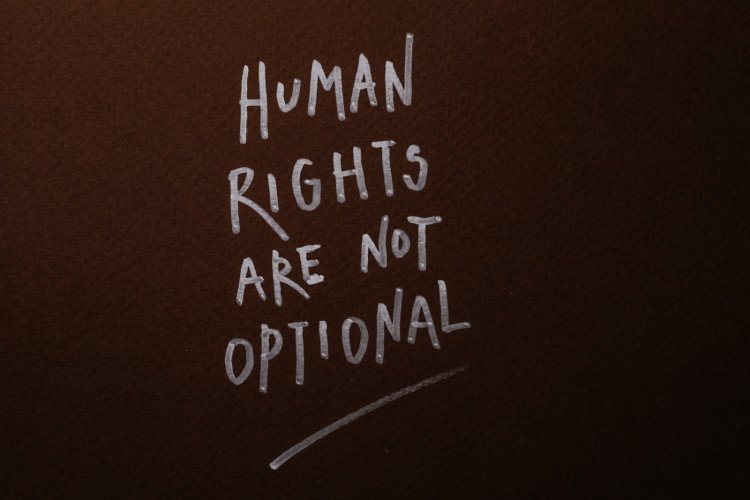UK Equality Act 2010, Women’s and Trans Rights—Progress or Backsliding?

15-06-2023
Jessica Schwarz
Women’s Rights Researcher,
Global Human Rights Defence.
On 12 June 2023, the UK Parliament debated the Equality Act 2010 and changing the act’s definition of ‘sex’ into ‘biological sex’, the one assigned at birth, and not legal sex, which can be changed by a trans person with a gender recognition certificate. The Equality Act 2010 aims to protect citizens from unlawful treatment resulting from discrimination of person’s characteristics, which include age, disability, gender reassignment, marriage, pregnancy, race, religion, sex and sexuality. Backed by Prime Minister Rishi Sunak, Minister for Women and Equalities Kemi Badenoch wants to clarify the distinction in law between those born a particular sex and those who transition or identify as a gender different to their birth sex (Allegretti, 2023). This would then make it legal for trans people to be banned from single-sex spaces, such as hospital wards and domestic violence shelters and more. Badenoch asked the human rights organisation, the Equality and Human Rights Commission (EHRC), to advise on the change, with the organisation seemingly agreeing with the change. The EHRC’s advisory letter stated that if ‘the protected characteristic of ‘sex’ means biological sex, [it] could bring clarity in a number of areas, but potential ambiguity in others’ and the government should carefully consider that any change could have ‘possible disadvantages for trans men and trans women’ (EHRC, 2023). The change is advocated by those claiming to champion the rights of women while forgetting that transwomen are women, too, especially as the proposed change constitutes a significant change with detrimental impacts on the trans community. Currently, sex is defined as legal sex, meaning that those with a gender recognition certificate are protected; however, the new definition would make exclusion from same-sex spaces possible, even with a gender recognition certificate. In effect, transgender people could be denied access to public bathrooms in a similar vein to the US bathroom bans—in other words, a grave violation of human rights.
In accordance with both the European Court of Human Rights and the Gender Recognition Act, trans people and their gender reassignment are ensured and protected; this would be removed should the UK government choose to redefine ‘sex’ in the Equality Act in a way that excludes legal sex. In its current form, the act uses ‘sex’ and ‘gender’ interchangeably. The need to update the language used in the act is all the more clear given the use ‘transsexual’ to refer to trans people. Additionally, the update also gives no mention to intersex people. These discussions regarding legal clarification are important and need to be addressed, but never at the cost of minority groups such as the LGBTQ+ community. Changes to update existing legislation should be inclusionary and advancing equality, not the opposite. Furthermore, this debate surrounding the Equality Act comes after Britain's government blocked gender reform laws passed by Scotland’s devolved parliament earlier this year (Walker and Brooks, 2023). Certain individuals within the Conservative Party advocate for sex-based rights also for electoral gains and exploitation, once again, creating a culture war where trans people, their lives, bodies and right are exploited and the outcome is likely increased discrimination and transphobia. The debate over sex in the Equality Act is likely to invalidate the hard-won legal protection and standing of trans people, back sliding the progress made for the LGBTQ+ community. During Pride Month no less.
Sources and further readings:
Allegretti, A. (2023, 05 April). What would changing the Equality Act mean for trans people and single-sex spaces?. The Guardian. Retrieved 15 June 2023 from: https://www.theguardian.com/law/2023/apr/05/what-would-changing-the-equality-act-mean-for-trans-people-and-single-sex-spaces
EHRC (2023, 04 April). Clarifying the definition of ‘sex’ in the Equality Act’. Retrieved on 15 June 2023 from: https://www.equalityhumanrights.com/en/our-work/news/clarifying-definition-%E2%80%98sex%E2%80%99-equality-act?utm_source=Twitter&utm_medium=social&utm_campaign=Orlo
Walker, P. and Brooks, L. (2023, 17 January). Court battle looms as UK ministers block Scottish gender recognition law’. The Guardian. Retrieved on 15 June 2023 from: https://www.theguardian.com/uk-news/2023/jan/17/uk-government-formally-blocks-scotlands-gender-recognition-legislation




 GHRTV
GHRTV 




























